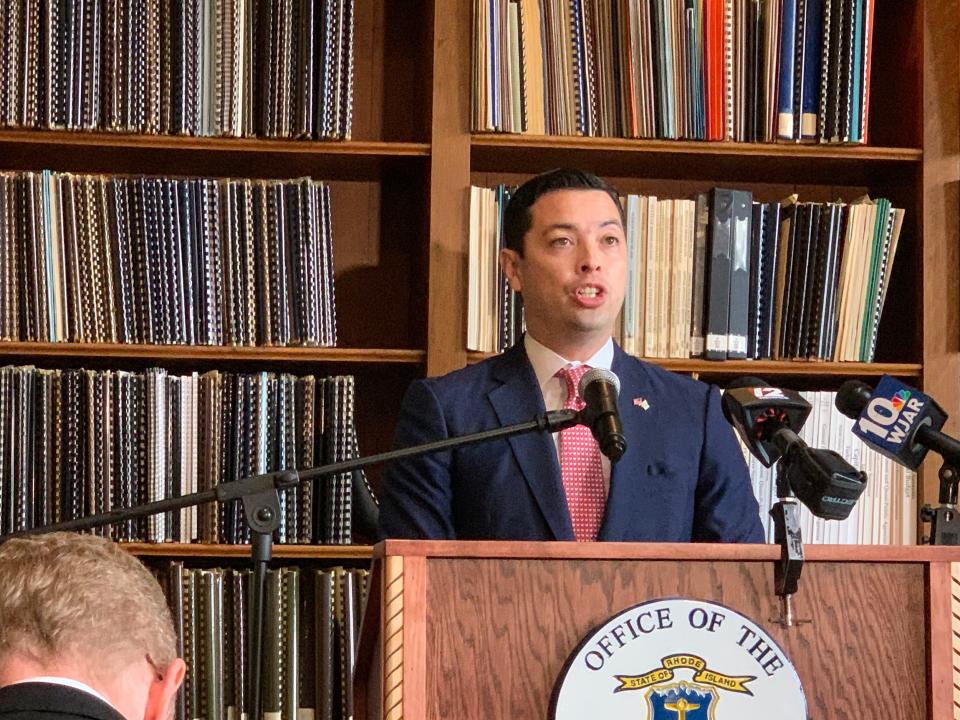RI deposited $190m with bank accused of redlining. Will it stay there?
PROVIDENCE − Following a proposed settlement with the federal government over allegations of racial discrimination, also known as "redlining," Rhode Island State Treasurer James Diossa said Thursday he will be having conversations with Washington Trust bank CEO Edward Handy III as part of an "evaluation" of the $190 million the state deposited with the bank.
Diossa said the allegations against the bank that it discriminated against Black and Hispanic residents by failing to open branches in their communities, by failing to reach out to them, or not lending to them when it did offer loans in their neighborhoods, are disappointing because Washington Trust is such a prominent "corporate citizen."
The bank must be held to a higher standard because it is the oldest community bank in the country, he said.
Diossa said he wants Washington Trust to offer more "opportunities" for business owners to open or expand and to offer financial literacy courses.
Washington Trust agrees to settlement: Washington Trust settles over accusations it discriminated against Black, Hispanic borrowers
A proposed settlement with the Rhode Island US Attorney's Office has Washington Trust spending $7 million on grants for mortgages, with a cap of $25,000 per grant.
"We want to make sure, outside what they've consented to, they do more in these communities," Diossa said.
When asked if he was thinking of pulling the $190 million in deposits the treasurer's office has with the bank, he said he is "evaluating" the office's positions.

Washington Trust denied all the federal allegations of racial discrimination.
What did Washington Trust agree to?
The bank agreed to spend $9 million, including $7 million to help would-be buyers, $1 million (at $200,000 a year) for groups that help people in majority Black and Hispanic census tracts and $1 million in advertising, outreach, consumer education and credit initiatives.
Read more about the proposed settlement, and the accusations, here.
What kind of benefits would would-be homebuyers get?
With a proposed $7 million coming for home buyers, the consent order has rules on how that money can be used, including the maximum each person can get, which is $25,000.
The ways the $7 million can be used are: offering a loan at an interest rate below the market rate, down payment assistance as a grant, closing cost assistance as a grant, payment of initial mortgage insurance premiums and "any other assistance measures approved by the United States."
If every person received the maximum benefit, $25,000, a total of 280 people would benefit. If every person received half the maximum, $12,500, the number of people benefiting rises to 560.
Thanks to our subscribers, who help make this coverage possible. If you are not a subscriber, please consider supporting quality local journalism with a Providence Journal subscription. Here's our latest offer.
Reach reporter Wheeler Cowperthwaite at wcowperthwaite@providencejournal.com or follow him on Twitter @WheelerReporter.
This article originally appeared on The Providence Journal: Washington Trust, bank accused of redlining, holding money for RI

